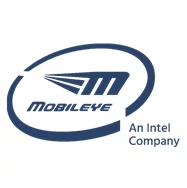- HOME
- »
- Solutions
- »
- FLEET MANAGEMENT
- »
- Electric Vehicles
Electric Vehicles
To ensure the effective and reliable use of EVs, EV-specific telematic capabilities for performance monitoring are required.
The transition to EVs has spread across the globe over the last few years. This is not surprising, considering their affordability and sustainability when compared with internal combustion engine vehicles.
EVs save on running costs as they require no fuel budget, and their maintenance is more cost-effective, since expensive engine work is not needed. Their reduced emissions, reduced noise pollution, and the fact that they can easily be powered from local and renewable green energy sources make them very environmentally friendly.
These environmental and sustainability objectives drive electric vehicle policy support at all governance levels and make it one of the most promising solutions for sustainable transportation systems. However, some aspects of EV-based mobility still hold some challenges.
Our Electric Vehicles Solution
Data access in EVs can prove a challenge, as they do not follow traditional telematics data standards.
At Cellocator, we understand that in order to allow effective and reliable use of EVs, they should be equipped with a set of EV specific telematics capabilities. These capabilities address issues like battery and charging management, accuracy of remaining driving range and locating of charging stations.
The main goal is to avoid situations where fleet managers put vehicles into use without knowing their state-of-charge, or they schedule charging for less-than-optimized times. In addition, we want to ensure drivers have the tools to know when and where to charge their vehicles.
We enhanced our product-range with unique capabilities to access the EV vehicle data, using the Cello-CANiQ unit which can be installed using the CAN Contactless Adaptor, or directly to the CAN.
Cello-CANiQ for Electric Vehicles
The Cello-CANiQ provides remote insights into EVs, including mobile and web applications that provide full assistance for fleet managers, EV drivers or vehicle companies. These insights include:
- Battery health monitoring
- Energy consumption monitoring
- Battery level monitoring and real-time charging status
- Remaining charging time indication at all times
- Indication of remaining driving range/distance
- Providing location of available/nearby charging stations including navigation
- Information about which vehicle is connected to which charger
- Recommended hours for charging
In addition, in some cases the charging station includes a CANBUS controller. This enables connection between the vehicle and the charging station, and provides information about whether the vehicle is connected to a charger, which charger it’s connected to, and how much energy the power company supplied to the vehicle. Knowing each vehicle’s real-time charging status prevents loss of productivity that might result from insufficiently charged vehicles, or from drivers who forget to plug in and charge.
How we help vehicle manufacturers
Vehicle manufacturers can use our solution to gather data and insights that they can offer as an additional service to their customers, including better electricity costs, nearby charging stations, recommended hours for charging, etc.
They can also use the gathered data to monitor the performance of their electric vehicles. For example, they can monitor battery consumption and health (kwh per km) and vehicle diagnostics in order to learn about the utilization on a specific timeline, to improve capabilities, and identify vehicle issues.
How we help private vehicle owners
Private EV owners need to know the status of their vehicle at any given moment. For example, if the power jumped while charging, or the vehicle was not charged for some other reason, they should be made aware of such. Our solution can read the charging state, the range left in km, the energy consumption and the time left for charging, and can provide the driver with alerts and notifications.
How we help public transportation
Our solution for public transportation also ensures the efficient management and operation of electric buses.
We can measure how many kwh were consumed from the power company and translate it to costs, enabling public transportation companies to know exactly how much each trip cost.
Furthermore, we can indicate how much a trip would have cost if the buses were charged during different hours (peak/off-peak). When following the schedule provided by third-party charging utilities, based on peak- and off-peak demand hours it can make the process significantly more efficient and cost-effective. This tool can also be used to educate drivers and fleet managers to manage their charging hours in a more effective manner.
Real-time data on battery charge percentages and charging statuses enables operators to identify which EVs in their fleet have the most (or least) battery charge, and provides a quick-glance view of which vehicles are actively being charged at any given time.
Fleet managers need this data to ensure high utilization rates, minimize downtime due to insufficient charge levels, and thus optimize their operations to get the most out of their EVs.
They can also use the remaining driving distance feature when planning a sequence of trips or selecting a vehicle for a trip. By knowing exactly how much charge a vehicle has and how far it needs to travel, it allows them to see which vehicles are ready to be taken out for the next job. In addition, fleet managers can avoid higher charging costs during peak time and avoid waiting in line for charging.
Additional real-time vehicle diagnostics information enables fleet managers to know if there is an issue with the bus and if it should go directly to the repair shop. This ensures the solving of potential issues before they happen and help in prolonging the bus’s lifetime. Included in these real-time diagnostics is the electric vehicle’s energy usage, including history of when and where the vehicle has been charged; this provides insights into the vehicle’s battery usage, its performance, and an indication of the battery’s health.
Bottom Line
In order to allow effective and reliable use of EVs, they should be equipped with a set of EV specific telematics capabilities. These capabilities address issues like battery and charging management, accuracy of remaining driving range and locating of charging stations. The Cello-CANiQ provides remote insights into EVs, including mobile and web applications that provide full assistance for fleet managers, EV drivers, or vehicle companies.















